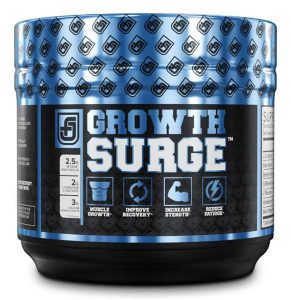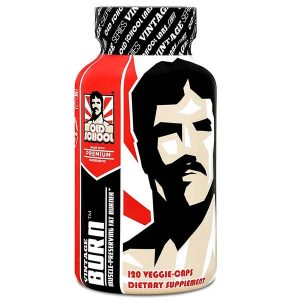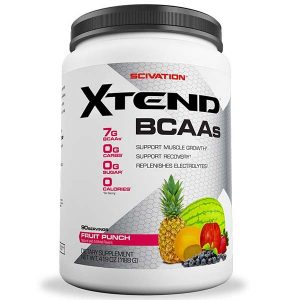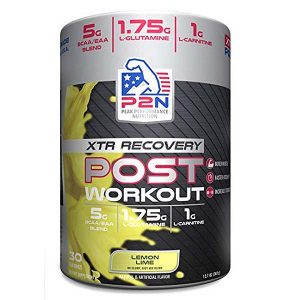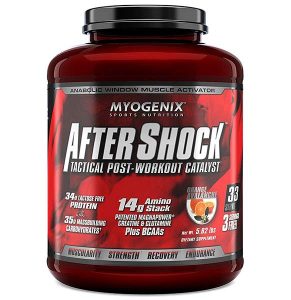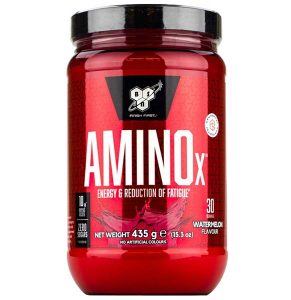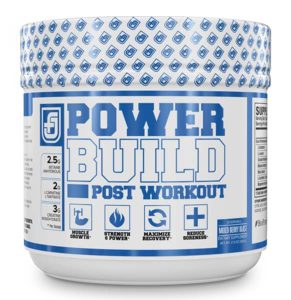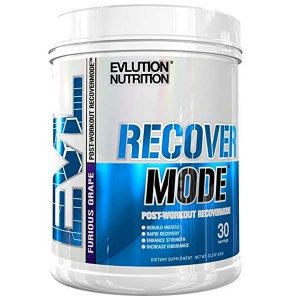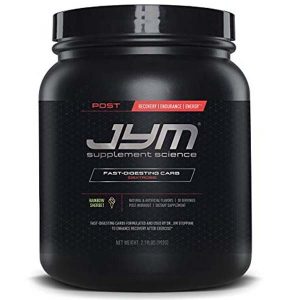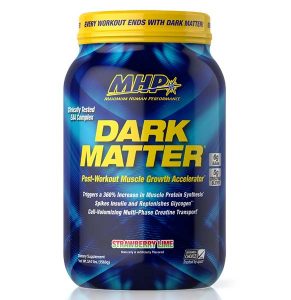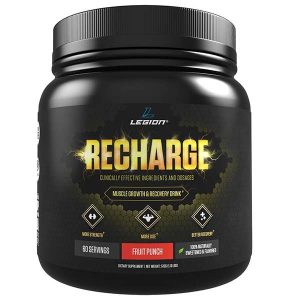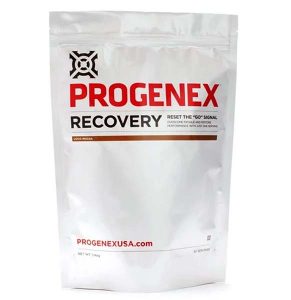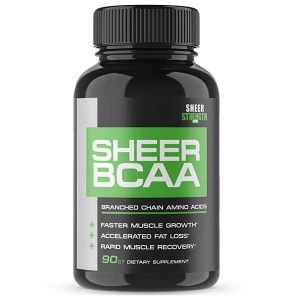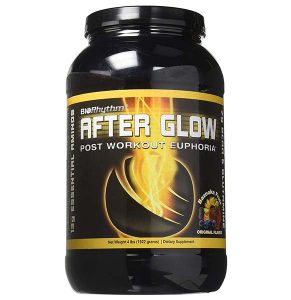Post-Workout
Best Post Workout Supplements of 2019
Published
5 years agoon
By
Health Team
Post workout supplements help your body recover from physical activity.
A good post workout supplement reduces soreness, helping you prepare for your next workout. Some post workout supplements contain protein and amino acids. Others contain vitamins, minerals, and carbs.
With so many different post workout supplements on the market, it can be difficult to know which supplement is right for you.
Today, we’re listing the best post workout supplements available today.
Rankings
Jacked Factory Growth Surge
Jacked Factory Growth Surge claims to support post workout muscle building with creatine, betaine, L-carnitine L-tartrate, and other ingredients. Overall, the ingredients are similar to other post workout formulas on this list, but Jacked Factory has added the right ingredients at dosages while maintaining a fair price point.
Each 10g scoop of Growth Surge contains 3g of creatine monohydrate, 2.5g of betaine anhydrous, 2g of L-carnitine L-tartrate, and 5mg of Bioperine. You can buy it in two flavors, including blueberry lemonade and “swoleberry”.
Today, Jacked Factory Growth Surge is one of Amazon’s consistent bestsellers in the post workout supplement category. It also has an average rating of 4.6 stars out of 5, making it one of the highest-rated supplements on this list.
Old School Labs Vintage Build
Vintage Build may have the best packaging on this list. Similar to other supplements from Old School Labs, Vintage Build delivers a high-quality blend of ingredients with vintage-style artwork on the outside packaging.
The supplement promises to help you build muscle without bulking and improve strength and recovery using a 3-in-1 formula. That formula includes branched chain amino acids (BCAAs), creatine, and L-glutamine.
Amazon sells a container of Vintage Build for $38. Each container has 30 x 11.7g scoops (30 servings). You can buy it in two tasty flavors, including Fresh Berries and Lemon Lime.
Scivation Xtend
Scivation Xtend continues to be one of the bestselling BCAA supplements on Amazon. It doesn’t have the same rich blend of ingredients as other formulas on this list. What it does have, however, is a great blend of ingredients at a very competitive price point ($20 for 30 servings).
Each serving of Scivation Xtend includes 7g of BCAAs, 2.5g of glutamine, 1g of citrulline malate, and 1140mg of electrolytes. That’s a hefty dose of the BCAAs, amino acids, and electrolytes your body needs to recover effectively after a workout.
Xtend is available in three flavors, including Blood Orange, Blue Raspberry, and Blue Raspberry Ice. You can also get even better value by buying the 50 serving ($40) or 90 serving ($50) package options.
P2N Peak Performance Nutrition XTR Recovery
P2N Peak Performance Nutrition offers their popular XTR Recovery formula on Amazon for around $16 to $18 for 30 servings (30 scoops). Each 12g scoop contains 5g of BCAAs and EAAs, 2.75g of L-glutamine and L-carnitine, and 1.39g of a nitro-amino matrix.
What makes XTR Recovery different from many other formulas on this list, however, is the use of electrolytes. There’s a small amount of sodium (100mg) and potassium (45mg) in each serving. You also mix it with water – not milk or a shake. It’s available in fruit punch or lemon lime varieties.
Myogenix After Shock
Myogenix describes their After Shock supplement as a “tactical post workout catalyst”. Each serving includes a 14g amino stack, 34g of lactose-free protein, and 35g of carbohydrates, making it one of the densest formulas on this list.
Interestingly, Myogenix After Shock is also one of the few post workout formulas that cares about your joints. Each serving includes 1.5 of a “Joint Support Blend” that includes glucosamine sulfate, chondroitin sulfate, and MSM.
Myogenix is much more expensive than other options on this list, priced at $39 for a 15 serving (30 scoop) container. However, you can easily half that dose and still get more power than many other post workout supplements on this list.
BSN Amino X
BSN Amino X contains BCAAs and amino acids mixed with citrate and sodium bicarbonate. Altogether, these ingredients claim to help your body fight off short-term anerobic fatigue while also restoring your body’s long-term energy stores. BSN claims their formula maximizes speed, power, and endurance for athletes looking for the best post workout supplement.
Because of its blend of amino acids, BSN Amino X is best for those who recently performed short, high-intensity exercises – like high intensity interval training (HIIT) or certain sports. The formula should restore your body’s natural stores that were depleted during the workout.
BSN Amino X is available in strawberry dragon fruit, strawberry orange, and watermelon varieties. A container with 30 x 14.5g scoops (30 servings) is available for $22 from Amazon and other major retailers (a 70 serving package is also available).
Jacked Factory Powerbuild
Jacked Factory’s Powerbuild is one of the most popular and bestselling post workout formulas available online today. Priced at $34 for 20 servings, Powerbuild may seem more expensive than other formulas on this list – until you realize that each serving (each scoop) contains 25g of formula (!). That’s one of the largest scoop sizes we’ve seen in the supplement industry.
Each serving includes 5g of L-glutamine, 4g of L-leucine, 3g of creatine monohydrate, 2.5g of betaine anhydrous, 2g of beta alanine, 2g of L-carnitine L-tartrate, and 5mg of black pepper extract. That’s a rich blend of BCAAs and amino acids at very strong dosages.
Overall, if you’re looking for one of the most powerful post workout formulas on the market in terms of dosage, then Jacked Factory is an excellent option. Few other supplements package this much recovery and muscle-building power into a single formula.
Evlution Nutrition Recover Mode
Evlution Nutrition Recover Mode is an effective post workout formula that includes many of the same ingredients we see in other formulas on this list, including BCAAs, creatine, glutamine, beta-alanine, and L-carnitine.
Evlution Nutrition claims their formula enhances muscle growth, protein synthesis, recovery, and endurance, helping you take your recovery to the next level. There’s also a surprisingly powerful vitamin complex in the formula, including 100% or more of your daily recommended value of vitamins C, D, and E. Minerals like calcium, phosphorous, chloride, sodium, and potassium have also been added to the formula.
Overall, Evlution Nutrition makes one of the best post workout formulas on the market today, featuring a rich blend of ingredients at the right dosages for maximum effectiveness. It’s priced at $29 for a 30 serving package (30 x 21g scoops) from Amazon, available in “Blue Raz” or “Furious Grape” flavors.
JYM Supplement Science POST
JYM Supplement Science makes a popular post workout formula called POST. It contains 6g of BCAAs along with hefty doses of glutamine, creatine, beta-alanine, L-carnitine, l-tartrate, and betaine, among other ingredients.
In total, each serving of POST contains approximately 18g of BCAAs and amino acids. JYM has even added 5mg of Bioperine or black pepper extract to enhance absorption.
Overall, POST is one of the highest dosed BCAA supplements available today. It’s also slightly more expensive than most others on this list, priced at around $37 to $40 for a package with 30 servings. You can buy it in lemonade, mandarin orange, natural lemon, and rainbow sherbet flavors.
MHP Dark Matter
MHP describes their Dark Matter supplement as a “clinically studied post workout supplement” that “triggers a 360% increase in muscle protein synthesis”. However, MHP doesn’t link to the actual study, nor do they explain these claims in further detail, which makes us skeptical that Dark Matter has ever been studied in a professional setting.
Despite the dubious health benefit claims, MHP’s Dark Better is one of the densest post workout formulas available today. Each serving (2 scoops, 78g per serving) contains 48g of carbs, 6g of EAAs, and 5g of creatine. You also get unique proprietary formulas like WaxiMAX, Hydrosize, and Prosynthagen that claim to support other post workout goals.
Overall, MHP Dark Matter is a good post workout supplement with problematic marketing: the company uses an insane 78g serving size (two huge scoops), then tries to dazzle you with its macro numbers – not to mention the mysterious “clinical studies” that appear to have never taken place on Dark Matter.
Legion Recharge
Many of the post workout supplements above have predictable ingredients: they use BCAAs, amino acids, and creatine, for example, to help your body recover from athletic activity. Legion Recharge, however, works in a different way with more unique ingredients.
The formula contains a few ingredients we expect to see, including creatine monohydrate and L-carnitine. However, it also contains corosolic acid from the leaves of the banaba plant – a plant and acid that few people have ever heard of. Legion claims corosolic acid “improves blood glucose control and enhances the signaling of insulin, thus magnifying the effects of post-workout carbohydrate consumption.”
Each scoop of Legion Recharge (8.55g per scoop, 60 scoops per container) contains 5g of creatine, 2.1g of L-carnitine L-tartrate, and 10.5mg of corosolic acid. Legion Recharge is priced at $35 for a 60 serving / 60 scoop container, making it one of the more expensive options on this list in terms of dosage.
Progenex Recovery
If you can afford it ($65 for 30 servings), then Progenex Recovery may be an effective post workout formula. The price also seems more reasonable once you realize each serving consists of two level scoops (37g total).
Each serving includes 23g of protein in three delicious flavors, including Belgian Chocolate, Peanut Butter Smash, and Tropical Vanilla varieties.
Unlike with other post workout formulas on this list, Progenex Recovery does not contain any BCAAs or amino acids. It’s just a protein shake. However, Progenex claims their hydrolyzed whey protein is specifically designed to support post-workout recovery more effectively than a standard protein shake.
Sheer Strength Labs Sheer BCAA Capsules
If you already have a good protein or creatine powder, then you may not need the post workout supplements above. Instead, all you may need is a good BCAA supplement. Sheer Strength Labs offers one of the top-selling BCAA supplements on Amazon today. Sheer BCAA contains 1050mg of L-Leucine, 450mg of L-Isoleucine, and 450mg of L-Valine packaged into each three gelatin capsule serving.
You don’t get the diverse blend of BCAAs you get in other supplements on this list, and you have to take three gelatin capsules instead of a powder. However, if you prefer BCAA capsules and want an easy recovery formula, then Sheer Strength Labs Sheer BCAA is a good post workout formula.
BioRhythm AfterGlow
BioRhythm AfterGlow is the most unique post workout supplement on this list. Other post workout supplements contain BCAAs and creatine to enhance recovery. BioRhythm AfterGlow, however, is the only post workout supplement that specifically claims to promote “euphoria” after a workout.
You know that good feeling you get after a tough workout? Like a runner’s high? AfterGlow claims to enhance this feeling after each workout. That sounds crazy – but many people swear AfterGlow actually works.
Today, AfterGlow can be hard to find. The company went out of business in 2016 (after complaints from the FDA). However, certain supplement stores – including retailers on Amazon – continue to sell the original formula, which contains whey protein, BCAAs, amino acids, antioxidants, electrolytes, and more. It’s like a post workout formula, protein powder, and electrolyte blend all mixed together.
Our Rankings
Comparing post workout supplements can be challenging. Many post workout supplements make similar promises: they claim to support muscle growth and recovery, for example, while delivering a rich blend of BCAAs, amino acids, protein, creatine, and electrolytes.
To compile the rankings above, our editorial team analyzed all of the following factors:
Ingredients: First and most importantly, we looked at ingredients. Your body needs certain things – like amino acids and BCAAs – after a workout. Many post workout supplements also contain creatine and electrolytes.
Dosages: Secondly, we looked at dosages. This was surprisingly complicated. Many post workout supplements use clever marketing to make themselves seem stronger than competitors. They’ll claim to have 20g of BCAAs, for example, which sounds impressive until you realize the serving size is equivalent to five scoops of a competing supplement.
Other Active Ingredients: Most of the formulas above had BCAAs and amino acids. However, we also considered other active ingredients that enhanced the formula. Some formulas used black pepper extract (BioPerine) to boost absorption, for example. Others used L-glutamine to boost muscle protein synthesis.
Label Transparency: Some of the supplements listed above used proprietary formulas to mask individual dosages. Other supplements listed each individual ingredient in a transparent way. We emphasized post workout supplements with maximum levels of transparency.
Artificial Colors, Flavors and Dyes: Some post workout supplements use artificial sweeteners, flavors, and dyes to enhance their formula. Others focus on natural ingredients.
Binders, Fillers, Stabilizers, and Preservatives: We punished or avoided post workout supplements that used high levels of binders, fillers, stabilizers, and other ingredients. We emphasized pure, high-quality supplements.
Delivery Method: Most of the post workout supplements above come in the form of a powder. You can mix the powder with water, milk, a shake, or the beverage of your choice. Certain other post workout supplements, however, are designed to be mixed only with water – like electrolyte supplements. Other post workout supplements – like certain BCAA supplements – come in the form of capsules. We emphasized powders because they provide the best combination of dose and value, although we also featured a range of other delivery methods.
Marketing: As with many other nutritional supplements, post workout formulas often have shady marketing tactics. Some claim to be clinically studied, for example. Others claim to rapidly boost muscle growth yet provide no explanation of how they do it. We emphasized post workout supplements with transparent, honest marketing.
Reviews and Ratings: Online reviews and ratings aren’t perfect. However, we took existing reviews and ratings into consideration to compile the rankings above, including the number of reviews in total and the average rating on Amazon and other major retail websites.
Based on all of these factors, we were able to put together a list of the best post workout supplements available in 2019.
Who Should Use a Post Workout Supplement?
People use post workout supplements, as you might expect, to recover from physical activity. A good post workout supplement provides your body with the nutrients it needs to repair your body after exercise.
While exercising, your body uses nutrients to keep your energy levels high. Your body depletes its existing resources to ensure you remain standing up to the end of your workout.
After the workout, your body needs to replenish the nutrients it lost during the workout. And, your body needs to repair the muscle fibers that were exercised during the workout.
If your body fails to get the vitamins, minerals, amino acids, and BCAAs it needs after a workout, then your body will not recover properly. You’ll feel sore the next day. Your muscles won’t repair themselves as quickly or as effectively as they otherwise would.
For all of these reasons, many people with all different fitness goals will take a post workout supplement. A post workout supplement gives your body the nutrition it desperately craves after a workout.
By taking a post workout, you can:
- Maximize gains
- Reduce or even eliminate muscle soreness after exercise
- Improve power and speed
- Boost strength and endurance
- Prevent headaches and other physical stressors after a workout
- Hydrate your body with electrolytes
- Gain mass, burn body fat, lose weight, or gain weight, depending on your goals and the post workout shake you take
Whatever your fitness goals may be, the right post workout supplement can help you get there.
Benefits of Post Workout Supplements
Post workout supplements use proven science to deliver your body the nutrition it needs. A good post workout supplement contains the nutrients, vitamins, minerals, carbs, proteins, and electrolytes your body needs after a tough workout.
Does science reinforce these benefits? Let’s take a closer look at the science behind BCAAs and other ingredients in post workout supplements.
Branched chain amino acids, or BCAAs, have a proven ability to prevent muscle damage during exercise while also enhancing muscle recovery after exercise. This effect was observed in detail in a 2006 study published in the Journal of Nutrition.
In that study, researchers in Japan separated a group of participants into two: one group took a BCAA supplement and the other group did not. Both groups performed squat exercises.
After the test, researchers concluded that BCAAs prevented the breakdown of skeletal muscle during exercise because the body was able to use the supplemental BCAAs instead of the BCAAs that already exist in your muscles. In other words, your body needed the supplemental BCAAs after a workout, and the best way to get those supplemental BCAAs was through a BCAA supplement – like the post workout supplements listed above.
There are 20 amino acids in total. 9 of these amino acids are considered “essential”, which means your body cannot make them on its own. The only way to get these essential amino acids is through your diet.
BCAAs are essential amino acids. The three BCAAs include leucine, isoleucine, and valine. Typically, a post workout supplement will contain these BCAAs in a 3:1:1 or 2:1:1 ratio (with leucine being the biggest number). More recently, some BCAA supplements have upped the ratio as high as 8:1:1 or 10:1:1.
A 2013 study showed how important BCAAs were for athletic supplementation. Researchers gave 26 college-age males a BCAA supplement or a placebo, then asked participants to cycle to exhaustion.
Researchers found that during cycling, blood levels of serotonin were lower in the participants that had taken a BCAA supplement. Serotonin is a crucial brain chemical that plays a role in exercise fatigue. Researchers also observed that BCAA supplementation improved energy metabolism and lowered levels of substances that indicate muscle damage, including creatine kinase and lactate dehydrogenase.
Based on these results, researchers concluded that BCAA supplements can improve exercise performance.
A separate study from 2009 found that BCAA supplementation has another surprising benefit: it can improve lean muscle mass and decrease body fat percentages.
The study involved 36 strength-trained males who had practiced resistance training for at least two years. Researchers separated the males into three groups, then asked them to go through an 8 week resistance training program. One group received 14g of BCAAs, another group received 28g of whey protein, and the third group received 28g of carbs from a sports drink.
After 8 weeks of resistance training, researchers found that the BCAA group had a significantly higher decrease in body fat and a greater increase in lean mass, compared with other groups.
Separate studies have reinforced the ability for BCAAs to boost lean muscle mass. This 2012 review, for example, showed that BCAAs can support healthy muscle mass in people with chronic conditions like cancer. Leucine was particularly valuable for maintaining muscle mass (which is why it’s the most popular BCAA in all of the post workout supplements above).
Many people take BCAAs to repair muscle damage after a workout. Instead of linking each study on BCAAs and muscle repair, let’s take a look at this 2017 systematic review, which found that BCAA supplementation can help reduce the muscle damage that occurs during high intensity exercise.
Similarly, a study from 2013 found that adult male participants who took a BCAA supplement during exercise had lower blood levels of substances that indicate muscle damage than those who took a placebo. Because of these results, researchers concluded that BCAA supplementation can reduce muscle damage after endurance exercises.
Similar effects have been observed for sprinting exercises. This study from 2015 showed that BCAA and arginine supplementation could improve intermittent sprint performance (i.e. HIIT exercises) over two consecutive days (arginine is another type of amino acids). A group of 22 participants played simulated handball games over two consecutive days. Half of the group took a BCAA and arginine supplement, while the other half took a placebo.
The BCAA group had significantly improved sprint performance over two consecutive days compared to the placebo group. Because of these results, researchers concluded that BCAAs could have “significant practical applications” for athletes who have to compete on consecutive days.
There’s one more surprising potential benefit of BCAAs: BCAAs could reduce the risk of liver disease. In this 2017 study, researchers randomly assigned participants with advanced liver cirrhosis into two groups. Over a six month period, one group took BCAAs and the other group did not.
After two years, Model for End stage Liver Disease (MELD) test scores improved significantly among participants who consumed BCAAs compared to those who did not take BCAAs. Because of these results, researchers concluded that long-term BCAA supplementation could benefit people with advanced liver cirrhosis, although they cautioned that further research was necessary.
Not all research on BCAAs has been positive. BCAAs have a proven ability to enhance certain athletic activities – but not others. One meta-analysis reviewed all BCAA research from 1985 and 2017, for example, and found zero human studies where BCAAs alone were responsible for more efficient protein synthesis or improved athletic performance. In fact, there were two studies where BCAAs actually decreased muscle protein synthesis.
Moving away from BCAAs and amino acids, let’s take a look at another common ingredient in post workout supplements: creatine. We’ve reviewed creatine supplements in-depth before, including the research behind creatine supplements. Suffice to say, there’s significant evidence that creatine can enhance athletic performance and recovery in a variety of ways.
Creatine is crucial for power athletes in particular, especially power athletes involved in sports or training where you need to expend a high amount of energy in a short period of time (less than 10 seconds). A 2003 paper published in the Journal of Strength and Conditioning Research explained how creatine could enhance athletic performance in various ways.
In the study, authors reviewed multiple papers analyzing creatine and strength gains. Researchers found that creatine could boost strength 8%, on average, compared to those who took a placebo.
Some of the post workout supplements above also contain beta alanine, which is particularly beneficial for anaerobic power athletes. Athletes involved in sports or exercises that require 60 seconds of sustained energy may be able to boost performance with beta-alanine. Beta-alanine enhances the ability of your muscles to continue working even as acidity builds up during longer, tougher, endurance-style workouts.
Beta alanine works because it’s a precursor to L-carnitine, which also reduces acidity during high intensity exercises. The more acidity you can buffer during exercises, the more you can workout (and at a higher intensity) for a longer period of time.
This review study published in 2014 did a good job of summarizing beta alanine’s benefits. Researchers described how beta alanine was particularly beneficial in power sports that required bursts of energy lasting for at least 60 seconds. Beta alanine was less effective for longer, lower-intensity activities like marathon running and hiking, however.
Many of the post workout supplements also contain glutamine. In fact, some people specifically take a dedicated glutamine supplement after a workout to reduce soreness.
Glutamine is a non-essential amino acids, which means your body can synthesize it on its own. However, research has shown that you can enjoy certain benefits by taking glutamine as a post-workout supplement.
Before it was used as a bodybuilding supplement, glutamine was used in critical care medicine, where it was studied for a way to improve recovery times from surgery. Over the years, the benefits of glutamine have spread to sports research.
A 2011 study published in the Journal of Exercise Science & Fitness found that glutamine could reduce muscle soreness and boost strength after tough workouts. A group of 15 men were split into two groups, with one group receiving a glutamine supplement and the other taking a placebo. After performing 100 drop jumps, the men had their strength and soreness assessed several times over a 96 hour period. Subjects who took a glutamine supplement lost less of their muscular strength and experienced lower levels of soreness compared to the placebo group.
Finally, many of the post workout supplements above contain carbohydrates. Taking carbs after a workout isn’t a new strategy. The theory is that carbs contribute to muscle growth by reducing the rate at which muscle protein is broken down.
However, carbs may not actually help you after a workout. This study published by researchers in New Zealand in 2013, for example, found that there was no evidence showing that adding carbs to a protein supplement increased muscle protein synthesis or lean muscle mass.
Another study showed that a post workout supplement containing 50g of carbs and 25g of protein was not more effective than taking just 25g of protein on its own.
Based on this research, taking a post workout supplement with carbs may not help you gain muscle any more quickly. However, some people – particularly those with low body fat – may benefit from taking carbs after a workout.
Side Effects of Post Workout Supplements
Generally, post workout supplements are well-tolerated. There are few side effects specifically associated with post workout supplements.
Branched chain amino acids and other post workout supplement ingredients have been widely studied in thousands of peer-reviewed reports over the past few decades.
Pre workout supplements contain caffeine and other energy boosters to get you pumped before a workout. These ingredients are effective – but they can also lead to unpleasant side effects. Post workout supplements, of course, do not contain energy boosters.
Creatine is generally safe to take as well. One study from 2002 found that there were no adverse effects associated with the long-term use of creatine in college football players, for example.
Beta alanine may be linked with minor side effects. Some people report feeling a rush of blood or warmth to their face after taking high doses of beta alanine, for example. However, this effect does not appear to be linked to any major long-term problems.
It’s recommended that you follow the dose listing on your post workout supplement. It’s also recommended that you talk to a medical professional before taking any post workout supplement.
Recommended Dosage
Most research on BCAAs involves taking 3g to 18g of BCAAs per day, with the most common dose ranging from 6g to 12g per day.
Larger athletes with more muscle mass will want to be on the higher end of that spectrum.
Creatine doses can also be high – particularly if you’re just starting a creatine routine. Some studies show that taking 20 to 25g of creatine per day for a several week period, for example, is most effective for growing muscle mass. Then, you should follow with a maintenance phase and a dose of 5g per day.
Most studies on beta alanine have recommended a dose from 2 to 6g per day. You may also want to split this dose into multiple smaller doses per day to prevent flushing.
Again, talk to your doctor to verify you are taking a safe dose of your post workout formula.
FAQs About Post Workout Supplements
Q: What is a post workout supplement?
A: A post workout supplement is a powder or capsule-based formula designed to boost your body’s recovery after athletic activity. The ingredients in a post workout supplement help your body begin to recover and repair its muscles after a workout.
Q: What’s in a post workout supplement?
A: most post workout supplements contain BCAAs and amino acids. Many also contain creatine, vitamins, nutrients, protein, or electrolytes, among other ingredients your body needs after a workout.
Q: Why do people take a post workout supplement?
A: People take post workout supplements to support different fitness goals. Some people use high-carb post workout supplements, for example, to gain mass. Others take post workout supplements to burn fat, increase muscle, reduce soreness, and enjoy other benefits.
Q: Which ingredient is most important for muscle recovery?
A: BCAAs and amino acids are crucial for muscle building and muscle recovery after a workout. They’re the building blocks of muscles. That’s why most post workout supplements contain some combination of BCAAs and amino acids. Creatine is also crucial for recovery.
Q: Should I take a post workout supplement to lose weight?
A: Some people think they should avoid consuming anything after a workout if they want to lose weight. Yes, you need a calorie deficit to lose weight, but your body still needs to recover from exercise. Instead of skipping a post workout altogether, we recommend choosing the right post workout. Pick a post workout formula with low levels of carbs and high levels of amino acids, BCAAs, and creatine, for example. That way, you get the maximum benefit with minimal calories.
Q: How do post workout supplements reduce soreness after a workout?
A: Post workout supplements reduce soreness after a workout by replenishing your body with the nutrients it needs. When your body fails to get these nutrients after a workout, your muscles may feel sore. Glutamine seems to be particularly effective for reducing soreness after a workout, as it plays a role in acid buildup in your muscles. Generally, BCAAs and amino acids can all effectively reduce soreness after a workout.
Q: What’s the difference between good and bad post workout supplements?
A: good post workout supplements contain BCAAs, amino acids, and creatine with high levels of purity and minimal amounts of filler. Depending on your fitness goals (mass gains or weight loss, for example), you may want to choose post workout supplements with carbs or protein as well.
Q: Are post workout supplements dangerous?
A: Generally, post workout supplements are well-tolerated and associated with few side effects when taken at a normal dose. Unlike a pre-workout supplement, a post workout does not contain stimulants like caffeine that can cause unpleasant side effects. Some people do, however, report feeling flushed or warm after taking high doses of beta alanine.
Q: What’s the difference between BCAAs and amino acids?
A: There are 20 amino acids. 9 of them are considered essential amino acids, which means your body cannot synthesize them on their own and needs to get them from other sources. Three of the 9 essential amino acids are considered branched chain amino acids (BCAAs), including leucine, isoleucine, and valine.
Q: What’s the best BCAA ratio?
A: BCAA supplements are typically listed in ratios – like 2:1:1 or 3:1:1, with the first number being the amount of leucine. Leucine is generally believed to be the most important, which is why there’s more leucine than isoleucine and valine. Some supplements have raised this ratio as high as 8:1:1 or 10:1:1 in favor of leucine. There’s no research indicating that one BCAA ratio is significantly better than other ratios.
Q: What are EAAs?
A: Essential amino acids, or EEAs, are amino acids that your body cannot synthesize (produce) on its own. You need to get EEAs from your diet.
Q: What are the best food sources for essential amino acids?
A: Good dietary sources of amino acids include meat, eggs, tofu, soy, buckwheat, quinoa, and dairy. Keep in mind that your body only needs to get the 9 essential amino acids from the foods you eat, while the other 11 amino acids are made naturally by your body. Lean meat, poultry, seafood, eggs, dairy, and plant-based proteins are the most common sources of amino acids.
Final Word
Post workout supplements provide your body with the fuel it needs after exercise. A good post workout supplement contains BCAAs and other essential amino acids to help your body support lean muscle mass and achieve other targeted benefits. Check our rankings of the world’s best post workout supplements to see which one is right for you.


